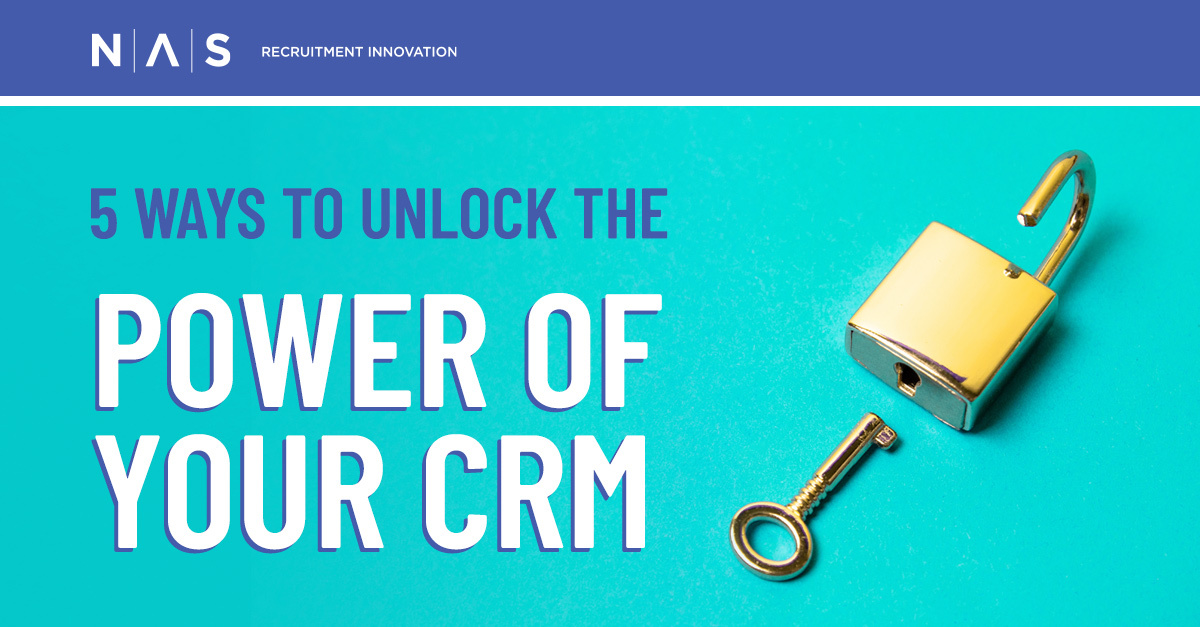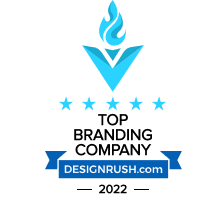-
5 Ways to Unlock the Power of your CRM
Posted by Hannah Dumas on June 20th, 2023 
Recruiters have the challenging task of connecting with the right candidates while consistently maintaining a strong employer brand. In the past, it was almost impossible to message and communicate with hundreds of candidates on a personal level. Even though this task has become more manageable, it is still time-consuming and often overlooked. However, a lack of communication or personalized response can lead to a negative impression. This is where Candidate Relationship Management (CRM) technology comes in handy.
CRM technology automates communication and nurturing efforts, making it possible to educate and share information with your community of job seekers automatically. This approach ensures that candidates are kept informed about new developments and hiring events at your company, helping them feel more connected to your brand and organization. In this blog, we’ll take a look at five ways a CRM can unlock your power to reach candidates more directly and effectively.
1. Automate Candidate Communication
One significant advantage of CRM technology is that it automates candidate communication, making it easy to nurture prospects and build relationships in record time. The days of manually messaging and maintaining contact with hundreds of candidates are over. With CRM technology, recruiters can connect and engage with candidates on their terms, seamlessly integrating messaging and brand awareness into their outreach efforts.
- By leveraging CRM technology, recruiters can create a more regular communication cadence with candidates, making job opportunities more impactful.
- Points of contact can include text (SMS) and email messages that can be sent to large groups or directly to individuals.
- Messages can also be scheduled in advance, enabling recruiters to create regular engagement and bring candidates back into their talent pool while minimizing the necessary time investment.
- With email marketing, recruiters can craft, save and send branded email templates that can be repurposed with new messaging. This approach ensures that candidates receive personalized and consistent communication, making them feel valued and connected to the brand.
2. Nurture Passive Candidates Effectively
When it comes to recruitment, finding the right talent is crucial. However, with 73% of job seekers being passive, it can be challenging to engage and retain their interest. In the past, passive candidates would fall into a black hole, never to be seen or heard from again. However, with the advent of CRM technology, recruiters can keep passive talent in a nurture program, ensuring that they are informed and encouraged to follow through if the right opportunities arise.
The CRM enables you to source passive talent from lead capture forms, using custom filters and advanced searches. Once these candidates are identified, they can be organized into talent communities, enabling recruiters to nurture them and provide touchpoints that keep the company and its jobs on the candidate’s radar. This improved process turns passive talent into prospects more efficiently and quickly, increasing the chances of filling critical positions within the organization.
Moreover, CRM technology allows for collaborative hiring, where other colleagues can review or leave comments on a candidate’s profile, making it easier to assess their suitability for a particular role. This approach ensures that recruiters can leverage the expertise of others within the organization, reducing the risk of hiring the wrong person.
3. Create Talent Communities
With a CRM, you can place talent into communities based on the criteria you set, such as job function, skills, or location. This allows you to segment your talent pools and create targeted campaigns to attract the right candidates for your open positions.
In addition to segmenting your talent pools, a CRM can also use advanced searches and filters to create segmented groups based on specific attributes. This CRM segmentation creates the opportunity for more targeted and personalized messaging.
Candidates are seeking personalized experiences and want to feel seen and understood. The CRM’s segmentation capabilities give candidates interconnectedness before applying, making them feel more engaged with your company and more likely to apply for your job openings.
The segmentation is not only beneficial for multi-channel marketing, but also for diversifying the talent pools. With DE&I (Diversity, Equity, and Inclusion) playing such a significant role in today’s workforce, a CRM allows you to better access and communicate with a diverse talent pool. By segmenting candidates by demographics, such as gender, race, ethnicity, or veteran status, you can ensure that your outreach efforts are more inclusive and representative of your company’s commitment to DE&I.
4. Launch Targeted Campaigns
According to a survey by LinkedIn, 83% of talent acquisition leaders say that talent is the number one priority for their organization. Yet traditional recruitment methods can be time-consuming and often ineffective due to an inability to truly target the right candidates. Resumes, profiles and applications may get lost in the process or forgotten in the mix of other applicants. Additionally, some candidates may not engage with an employer until they feel they know and trust them.
This is where a CRM can be a game-changer for your recruitment process. It allows talent acquisition teams to find and engage individuals from the top of the funnel. By taking a more proactive approach to recruitment, you can fill your database with prospective candidate leads and reach out to them via email or text, even if they have not yet shown interest in your company.
- You can filter candidates based on specific criteria, such as their education, work experience or location. This targeted approach can help you identify candidates and message in a variety of ways that are more specific to their needs and interests.
- You can build and send customized campaigns to build brand recognition and trust. By reflecting your employer branding and messaging in your campaigns, you can attract candidates who share your company’s values and are more likely to be a good fit for your organization.
- You can also use your campaigns to nurture candidates by sharing content that provides insight into your company culture and values, and by highlighting your team and their accomplishments.
- You can create targeted campaigns designed to match the right candidates with hard-to-fill roles, share special initiatives or announce new openings. This approach can help you reduce the time-to-fill for open positions and ensure that you are finding the right talent for your organization.
5. Develop Data-Driven Strategies
As the job market becomes more competitive, it’s important for recruiters to have access to as much information as possible about their candidates. With a CRM, you can access a wealth of data about your candidates, learning more about their skills, experience, and preferences in a secure and compliant manner.
One of the main benefits of a CRM is the ability to segment talent pools and use data and analytics to learn more about them. Recruiters can analyze candidate data on both a zoomed-in and zoomed-out scale. They can zoom in to learn more about specific candidates’ locations and desired roles or zoom out to gain insight into overall conversions and user behaviors.
By using analytics to learn more about their candidates, you can refine your messaging and strategies to improve results. For instance, you can use data to identify which job postings are generating the most interest, which candidates are the most engaged and which recruitment channels are the most effective.
Another key benefit of a CRM is the ability to improve diversity and inclusion hiring within various groups. By creating segmented talent pools based on specific criteria, such as education or work experience, recruiters can ensure that they are attracting candidates from a wide range of backgrounds and perspectives. This can help to create a stronger internal culture and improve overall business outcomes.
Takeaways
Overall, implementing a CRM can significantly impact your ability to attract and retain top talent. By enabling easy segmentation and providing access to a wealth of data and analytics, a CRM can help you make more informed decisions about your recruitment strategies, refine your messaging, and outreach and drive better business outcomes.
Candidates want more than just being treated like a number or resume in a stack – and often they expect immediate feedback. Recruiters and talent acquisition teams can better meet these expectations with a CRM solution that improves the candidate experience and increases engagement through better sourcing, organizing, and nurturing.
Ready to learn more about NAS ACTIVATE CRM? Contact us today to set up a demo.
Hannah Dumas



